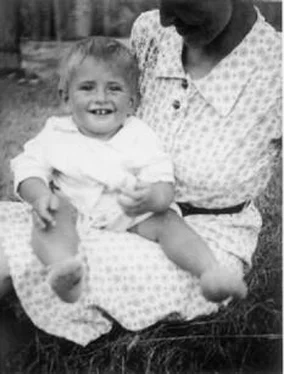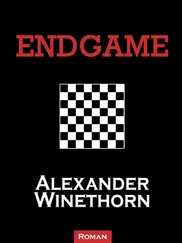Cuba—Since Castro was so anti-American, and Fischer knew the premier, he thought Cuba might accept him. Nada.
North Korea—Possibly the most anti-American country in the world. The problem was that Miyoko thought it was the worst country in the world and could not see herself living there or even visiting.
Libya—Mu’ammar Gadhafi was attempting to ingratiate himself with the United States and couldn’t take the chance of antagonizing President Bush.
Iran—To the Iranians’ way of thinking, Bobby was Jewish, and they had no interest.
Venezuela—No reason given for rejection.
Switzerland—Although the country was politically neutral, Bobby’s anti-Semitic views were not acceptable there.
Montenegro—Fischer’s connection with Vasiljevic, who had scammed so much money from the citizens, left them unenthused.
The Philippines—Although Bobby was adored by the Philippine chess community and had established ties there, he was unhappy with the ouster of president Joseph Estrada, whom he believed was “pushed out illegally.” He also felt that crime and corruption was rising in Manila and even in Baguio, and although he enjoyed living there, he was uncertain about gaining, or even wanting, asylum.
Iceland—Yes, Iceland! As a result of the 1972 match, Fischer had more to do with promoting Iceland than anyone in modern times. In effect, as a hero who’d come to the island and performed great deeds, he’d become part of the Icelandic sagas. The Icelanders were also known for their strength, fairness, and stubbornness. They had the ability as a people not only to offer him asylum, but to secure it and extricate him from prison.

Saemi Palsson, Fischer’s old bodyguard, was tracked down at his winter home in the north of Spain. “Saemi, this is Bobby. I need your help. I’m a prisoner in Japan and I want to get asylum in Iceland. Can you help me?”
A former policeman and carpenter who in his youth had gained unlikely fame as a “rock dancer,” who delighted people with his “twist” performances, Saemi would do anything for a friend. He also had an innate sense of self-publicity. Although he hadn’t seen Bobby in thirty-two years, Saemi phoned some political and business leaders and several from the chess community who he thought might be able to help Bobby. He was on a plane to the East in short order.
While Palsson was en route to Japan, a group of stalwart Icelanders met in Reykjavik to discuss whether there was any way asylum could be offered to Fischer. A committee was formed using Bobby’s initials: “RJF.” Perhaps as an afterthought someone came up with another meaning for the acronym: “Rights, Justice, Freedom.”
Though the rest of the world, including his own country, was vilifying Bobby for his outrageous positions and statements, the Icelanders felt sorry for him. They deplored what he’d said, but felt he had a right to express himself. The Icelanders also felt a sense of obligation. Fischer, in effect, had honored the country of Iceland by playing there in 1972, and now he was in trouble. To not help him, they believed, would be a greater moral offense and act of ingratitude than even his verbal attacks of hostility and hatred.
All of the members of the committee were eminent Icelanders and ardent chess enthusiasts: Gudmundur Thorarinsson, former member of parliament and the principal organizer of the 1972 Fischer-Spassky match; Magnus Skulasson, a psychiatrist; Gardar Sverrisson, a political scientist; Helgi Olafsson, a grandmaster; and Einar Einarsson, a bank executive. The group met for over five months in formal meetings, and there was much correspondence and phone exchanges between them as they began lobbying the Icelandic government to consider Fischer’s case. In the midst of this, they contacted both the United States and Japanese embassies in Reykjavik to protest Fischer’s incarceration. In a letter to Fumiko Saiga, the Japanese ambassador to Iceland, the RJF Committee stated, in part:
We feel obliged to express our deepest dismay and sorrow of the Japanese authorities’ grotesque violation of his [Fischer’s] human rights and of international law.… As we protest in the strongest possible terms against your handling of this matter, we request immediate release of Mr. Robert J. Fischer.
Palsson began visiting Bobby at the jail and met with some of the Japanese officials to see what he could do. Having a representative there from Iceland, although Saemi wasn’t an official, helped Bobby somewhat to make a credible case that the country was considering asylum. The problem was that he wasn’t helping his own case.
Bobby continued making broadcasts, this time directly from the detention center’s pay telephone, and they went immediately on the World Wide Web. Most of his vitriol was directed toward the Jews (“absolute pigs”), with a slight softening of his invective against the United States. Although still unkind (“the whole country has no culture, no taste, it’s filled with pollution”), his anti-American remarks were tempered somewhat—though hardly enough to win points with the U.S. Justice Department.
Fischer then announced that he was going to marry Miyoko Watai, his longtime companion. “I could be a sacrifice pawn,” she said to the press. “But in chess there is such a thing as pawn promotion, where a pawn can become a queen. Bobby-san is my king and I will become his queen.” Shortly after that the couple was married in a private ceremony in the prison. John Bosnitch was a witness. But was the marriage ceremony legal? More than a year later, when asked by a reporter whether she ever “tied the knot” with Fischer, Miyoko replied, “I’d rather not say,” and then added, “I prefer not to talk about private things.” Immediately, the media began implying that the alleged marriage was just a ploy to help Fischer obtain his release and live in Japan, but Suzuki disagreed: “It was already a de-facto marriage,” she said. “Now it is a legal marriage. I have never seen a case where there is so much passion and devotion.” Miyoko was more forthright when she stated: “We had been satisfied with our life before he was detained. Marrying him legally may be helpful to avoid the possible deportation and enable him to get a permanent visa in Japan.”
Fischer, on the advice of the RJF Committee, wrote to Iceland’s foreign minister, David Oddsson, and requested a residence permit, which was forwarded to him immediately. The Japanese court didn’t accept it, though. If a country offered Fischer citizenship , they specified, they’d consider deporting him to that country. In the meantime, the Tokyo District Court issued an injunction to stay the deportation order on the grounds that a passport violation was not an extraditable offense. The final lawsuit against the deportation could take as long as a year. After months behind bars, it didn’t look as though Bobby could emotionally survive for much longer.
Almost every day Fischer’s team attempted a new strategy. He was encouraged to write a letter to the Althingi, the Icelandic parliament, and he composed a five-hundred-word plea, extracts of which follow:
Ushiku, Japan January 19, 2005
Althingi, The Icelandic Parliament
150 Reykjavik
Iceland
Honorable Members of Althingi:
I, the undersigned, Robert James Fischer sincerely thank the Icelandic nation for the friendship it has shown to me ever since I came to your country many years ago and competed for the title of World Champion in chess—and even before that.…
Читать дальше



![Антон Текшин - EndGame [СИ]](/books/394477/anton-tekshin-endgame-si-thumb.webp)









